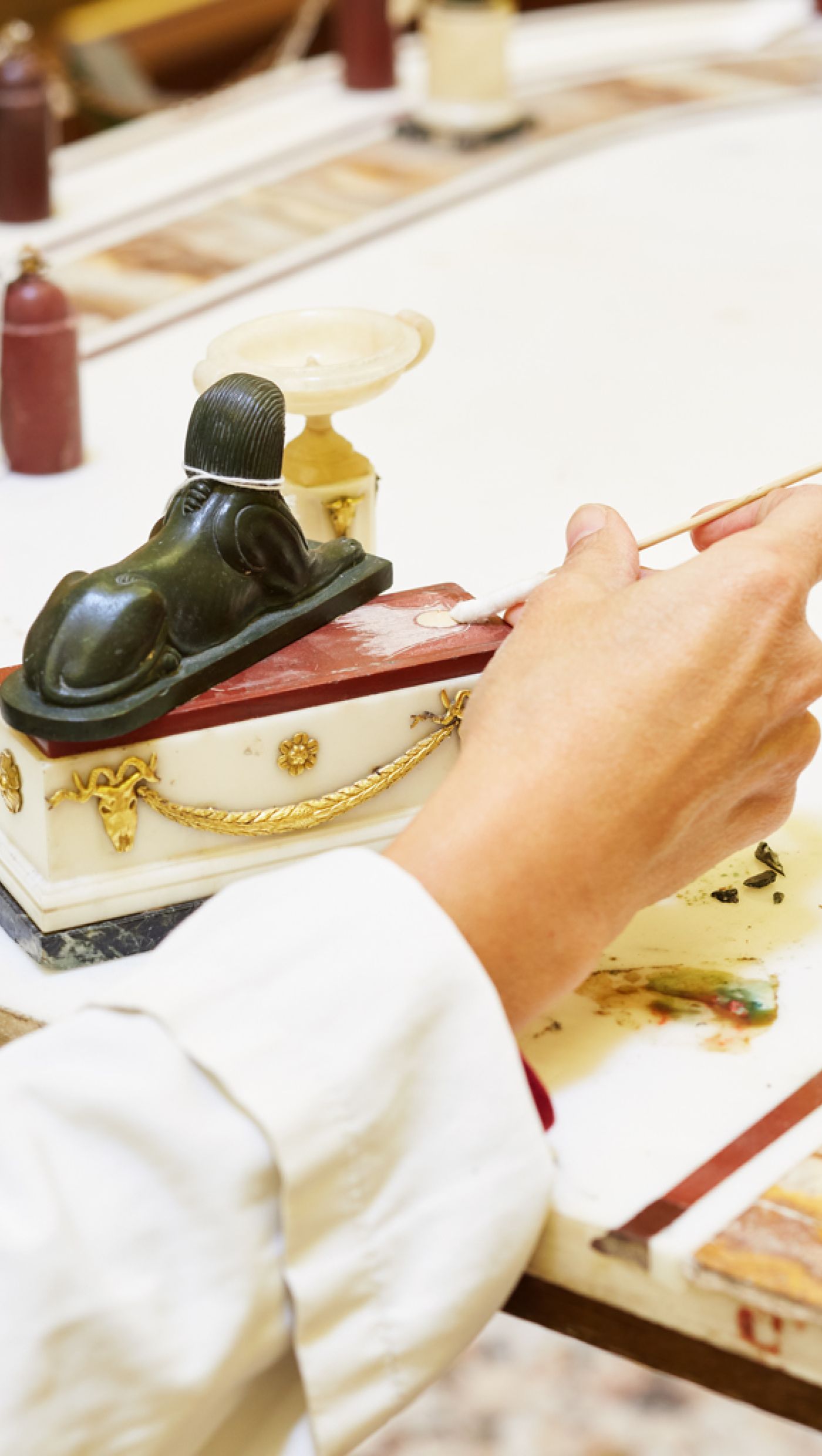Restoration (ReBA - Beato Angelico Restorations)
Starting in 2019, the Beato Angelico School Foundation has added to the experience of its art workshops the new laboratories dedicated to the field of Restoration - indicated by the acronym ReBA - in continuity with an integral attention to the work of art that has always characterised its history.
Particular attention is paid to the knowledge of materials and techniques of the great tradition, for a fruitful synergy between making and preserving.
The Foundation specialises in the entire management of the restoration process: scientific and art-historical study, diagnostics, conservation intervention, staff training, scheduled maintenance manual, communication and pastoral attention to the enhancement of the property. At the same time, the promotion of training courses and collaboration with the most accredited national and international Higher Education Schools and Universities allow for continuous updating of techniques, skills and intervention protocols.
Thanks to a team of restorers accredited by the MIBACT, to ongoing collaborations with specialised technicians and with professionals active in other sectors of conservation, the Beato Angelico School Foundation is today able to guarantee and coordinate specialised skills in the context of overall projects for the valorisation of the heritage at an ecclesiastical and civil level.
Areas of expertise
The types of property on which the Foundation's restorers work include both movable and immovable works, classes of organic and inorganic materials. ReBA also offers: consultancy services for planned preventive conservation in the field of ecclesiastical heritage (museum institutions and their repositories, private collections, etc.); assistance services for the setting up, monitoring and dismantling of exhibitions and permanent displays; photographic and digital imaging services for diagnostics, documentation, digitisation (3D Scanning and Printing, Virtual Tour, HD) and the enhancement of cultural heritage.
